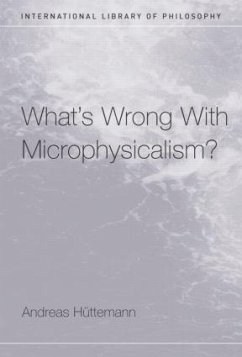"Microphysicalism," the view that whole objects behave the way they do in virtue of the behavior of their constituent parts, is an influential contemporary view with a long philosophical and scientific heritage. In "What's Wrong With Microphysicalism?" Andreas Huttemann offers a fresh challenge to this view. Huttemann agrees with the microphysicalists that we can explain compound systems by explaining their parts, but claims that this does not entail that the parts "determine" the whole. At most, it shows that there is a relationship of determination within parts and wholes, but there is no justification for taking this relationship to be asymmetrical rather than one of mutual dependence. Huttemann argues that if this is the case, then microphysicalists have no right to claim that the micro-level is the ultimate agent: neither the parts nor the whole have "ontological priority." Huttemann advocates a pragmatic pluralism, allowing for different ways to describe nature. In the course of his argument, Huttemann examines three compound theses of micro-physicalism: micro-determination (or "supervenience"), micro-government, and micro-causation. He uses examples from classical and quantum physics to illustrate various senses of micro-explanation, and discusses the likelihood of emergent phenomena or properties. He distinguishes between microphysicalism and other forms of physicalism, such as identity-physicalism, and argues that we can buy into the latter while rejecting microphysicalism. "What's Wrong With Microphysicalism?" is a convincing and original contribution to central issues in contemporary philosophy of mind, philosophy of science and metaphysics.
Hinweis: Dieser Artikel kann nur an eine deutsche Lieferadresse ausgeliefert werden.
Hinweis: Dieser Artikel kann nur an eine deutsche Lieferadresse ausgeliefert werden.








